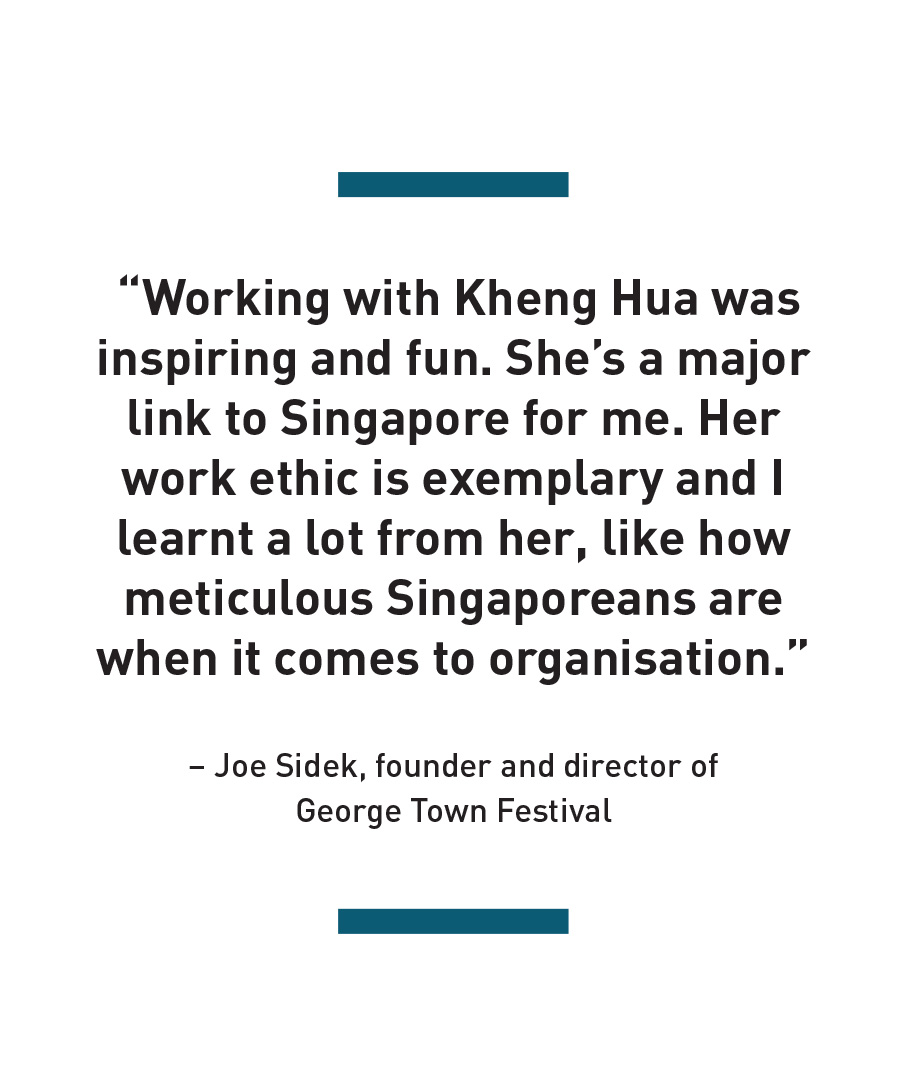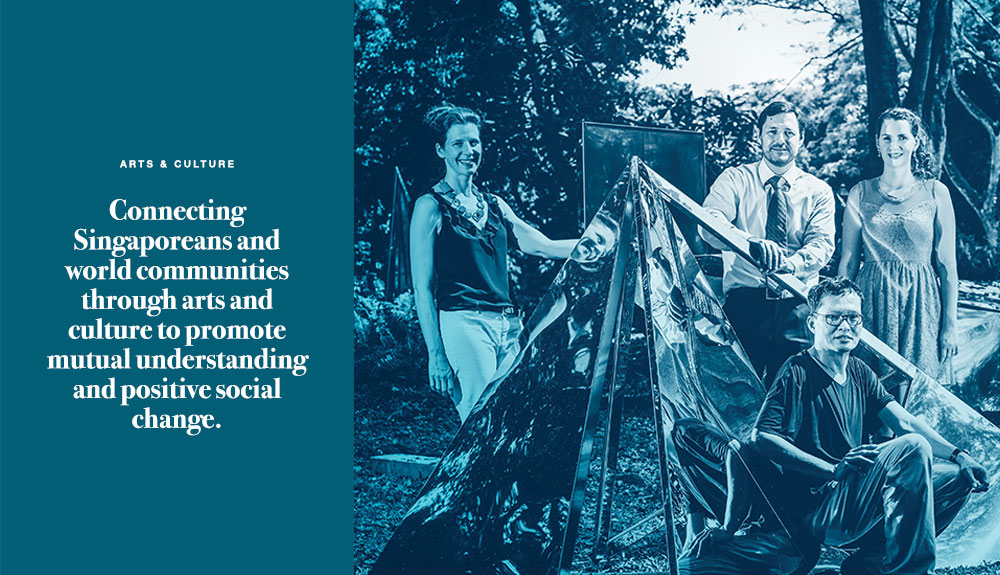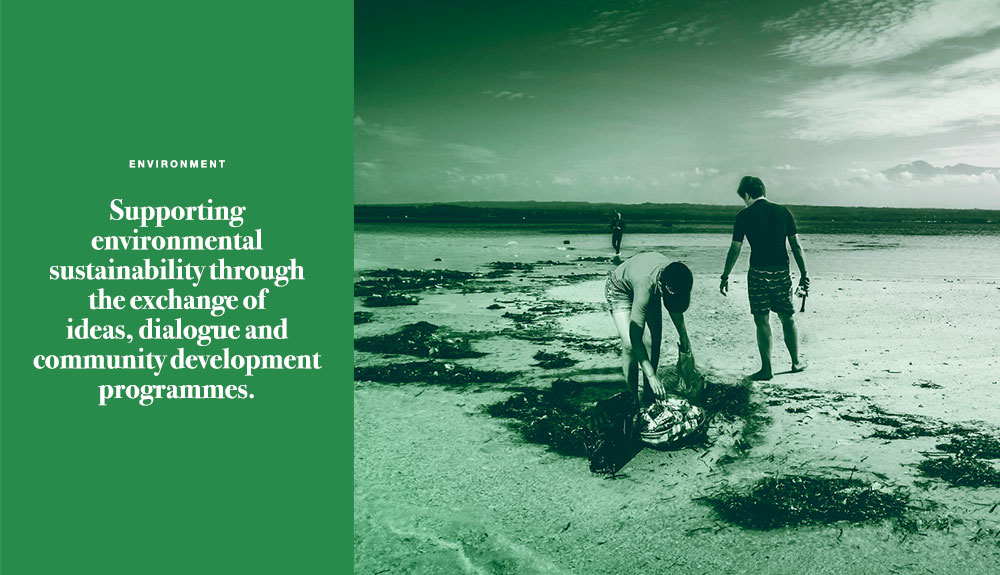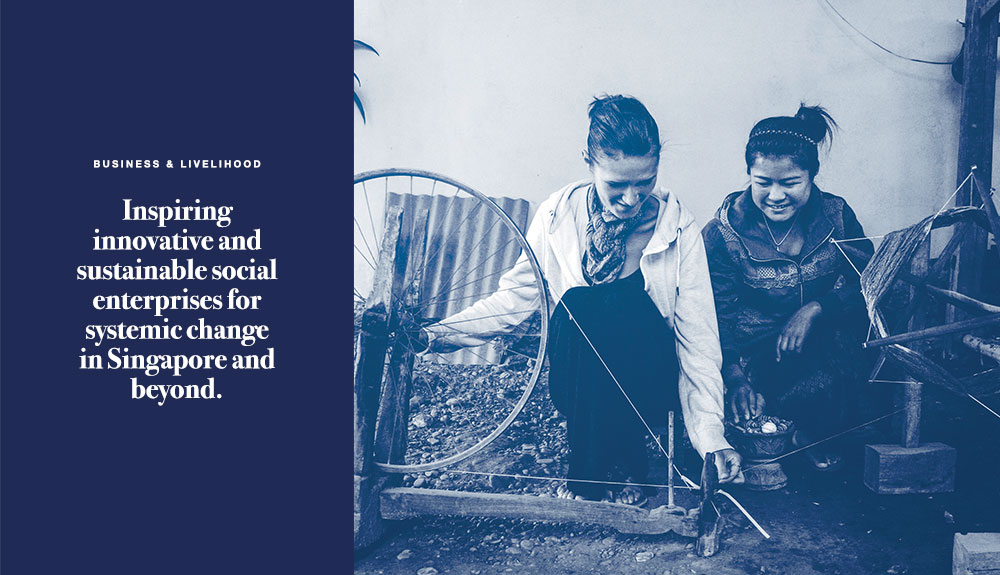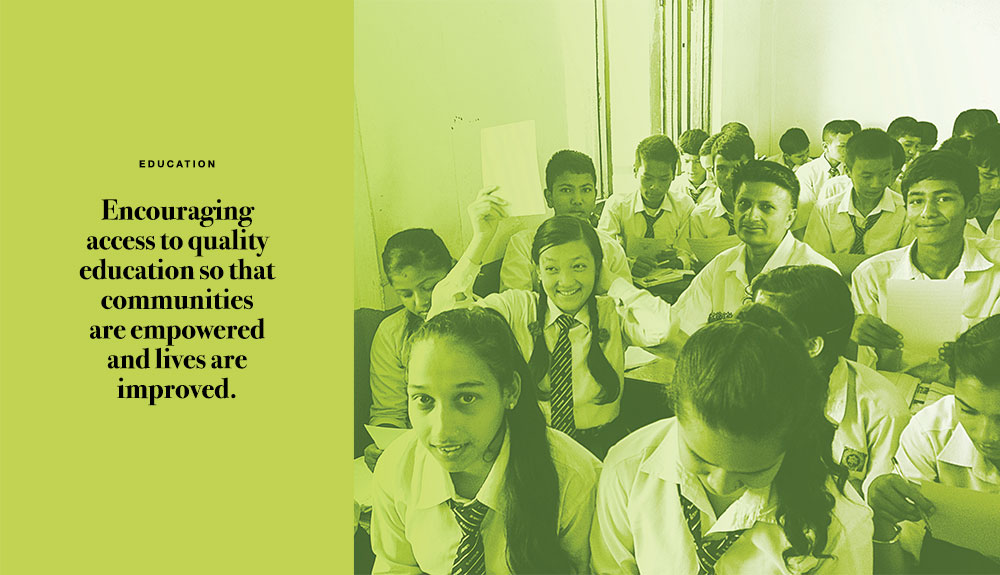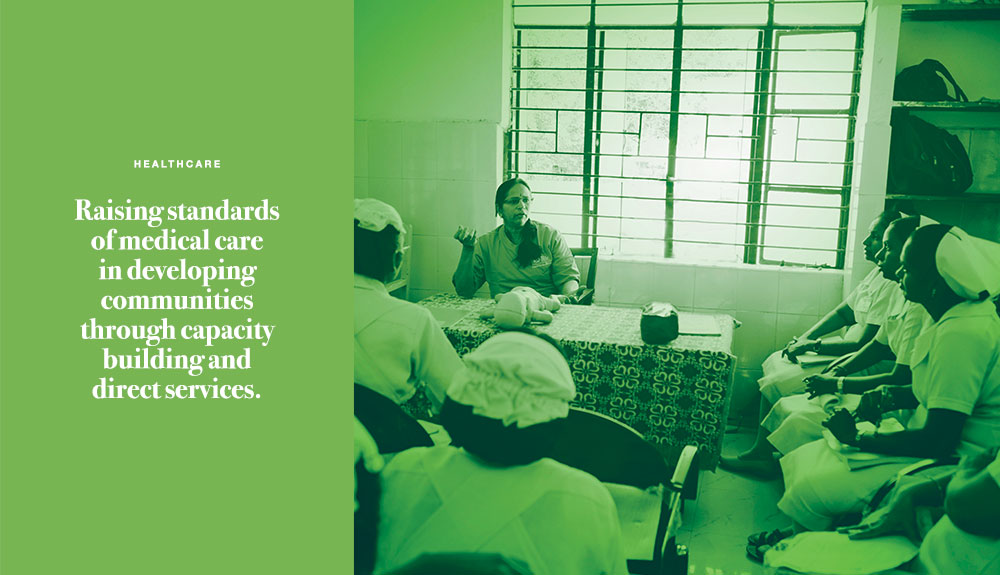
In August 2014, a bit of Singapore took over the Malaysian state of Penang during the month-long George Town Festival, an annual celebration of culture, arts, heritage and community. The SIN-PEN Colony was a pop-up festival within a festival that presented Singapore theatre, music, food, fashion, literature and photography to Malaysians. It was supported by the Singapore International Foundation’s Singapore Internationale fund, which showcases Singapore’s culture and creativity through the arts.
Big names from Singapore were showcased: Chef Malcolm Lee served Peranakan-inspired dishes, music group The Sam Willows played its hits and retailers like KushKush offered their wares. A play called 2 Houses, about life in Penang in 1941, was also staged as a Singapore-Malaysia collaboration; it had been written and directed by Singapore-based actor Lim Yu-Beng.
They had been handpicked by Singaporean actress Tan Kheng Hua, 53, who worked closely with George Town Festival founder and director Joe Sidek to bring them in. Sidek says: “Working with Kheng Hua was inspiring and fun. She’s a major link to Singapore for me. Her work ethic is exemplary and I learnt a lot from her, like how meticulous Singaporeans are in organisation.”
Tan, who produced another play written and directed by Lim for George Town Festival 2016, talks about how her friendship with Sidek sparked off the SIN-PEN Colony and brought communities from the two countries together.
1How did your friendship and collaboration with Joe Sidek start?
The first time I met Joe, we “combusted” – we got on like a house on fire. When we work, we really bring out the best in each other. I’ve learnt that freeing the artists and supporting them all the way goes a long way. Joe gives that environment to me. The minute he takes me under his wing, I know it is nothing to do with his personal taste. It is everything to do with his belief that my project will enrich the festival. There is nothing he will do to censor me and nothing he won’t do to help me get my show on its feet. We jump off cliffs together holding each other’s hands. It is an immense experience of togetherness. And I try to bring this feeling to all others working with me.
2Penang seems to hold a special place in your heart. Why? And did it inspire the birth of the SIN-PEN Colony?
The first phase of my love affair with Penang involved family. My in-laws are from Penang and we visit family there often. The second phase grew out of a creative work-based relationship in George Town. I had been invited to the George Town Festival for the first time in 2010 for a screening of The Blue Mansion, a film by Singaporean director Glen Goei and in which I had acted. I got to know George Town better then.
Later, during a late-night chit-chat in Singapore with me and my husband (Yu-Beng), Joe said he needed “an organised Singapore brain’’ to do a site-specific play about old-time Singapore in one of Penang’s grand, empty mansions. We knew exactly what he meant. Yu-Beng, who is Singaporean, mined his love for history with his family’s ancestry in Penang and wrote 2 Houses, about the days before its fall in World War II. Since many Singaporeans share family in Penang, it was a story that touched both Singaporeans and Penangites.
But the theatre element was not enough for me. I wanted to bring over the whole package of Singapore culture – in food, music and shopping – so I invited chef Malcolm Lee of Candlenut restaurant, musicians like The Sam Willows and retailers selling original Singapore products. I wanted to have a mini-Singapore festival within the George Town Festival. In the end, I took 84 Singaporeans up to Penang, unleashed them and watched how they interacted.
3How did the SIN-PEN Colony bring people together?
I would say the good relations were palpably felt on the floor: when the Malaysians acted with the Singaporeans; when the Singaporean visual artist worked with the Malaysian production crew; when the young Singaporean playwright banged on her computer next to the young Malaysian playwright; when they read their plays to each other and gave feedback; when the Singaporean chef used the Malaysian chef’s kitchen and crew to create and serve dishes for the supper event; when the entire Malaysian festival team worked overnight, night after night, to ensure all our programmes were up and running.
4Why do you think this understanding between countries is important?
Cross-cultural collaboration presents an opportunity to understand one another more. When people of similar passions are thrown together and have to work together, when we click, it is like falling in love. Love can solve great problems and if people can do that in art, maybe they can do that in all aspects of life. Wouldn’t that be a delightful way of living? Also, you see people in all their different shades because of the work involved. This honest way of being helps you get to know different cultures in ways being a tourist does not. You see people of another culture with warts and all. And so when you grow to love and understand them, this love and understanding is real.

